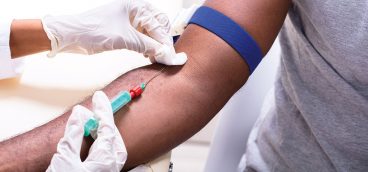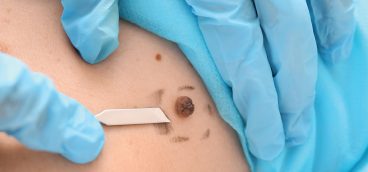What Does It Take to be a Living Donor?

Michaela Cook of Beaver Falls didn’t hesitate to give her husband one of her kidneys in 2010. The couple had two young children when Erik Cook’s organs were damaged beyond repair by type 1 diabetes. Like most living organ donors, Michaela was motivated by the desire to help a very sick loved one.
A small fraction of living donors give away an organ to a total stranger.
Every year, nurse Janice Glidewell, director of the transplant program at Allegheny General Hospital, encounters a few of these altruistic donors. “When you ask, ‘Why are you doing this?’ They say, ‘I have two kidneys. I don’t need both,’” Glidewell says. “I had one woman whose husband was dead set against it. She said, ‘These are my kidneys and I know my kids are aren’t going to need them and I want to help somebody else.’ ”
Becoming a living donor is a big commitment that typically involves a couple of months of testing, not to mention surgery and recovery. “Some people have a misconception that, ‘I get a couple of tests and I’m good to go.’ There is a rigorous amount of testing. Just like what the recipient goes through,” Glidewell says. “A lot of people drop off during the process but people who are really passionate about it, hang on.”
There are also those who want to give but get turned away. “If a patient is diabetic, they will never be able to be a living donor. High blood pressure used to be on that list. But if it is controlled with one medication, we look at them for donation,” says Dr. Lorenzo Machado, transplant surgeon at Allegheny General Hospital. “We look at everyone closely. The risk of having a catastrophic event from this surgical procedure is not any greater than any other procedure. It is less than undergoing a laparoscopic gallbladder surgery. But we put them through medical and psychological testing to try to determine—of course, no one can be 100 percent—if they are at undue risk. If so, we are very quick to say no. We are not going to put a donor who is a healthy person at risk to save someone else.”
Learn more about Allegheny Health Network’s living kidney donor program at ahn.org/specialties/transplant-institute/living-donor-kidney-program.
UPMC does both living kidney and liver donations. Learn more at facebook.com/livingdonortransplant.




